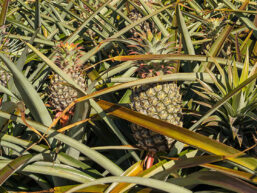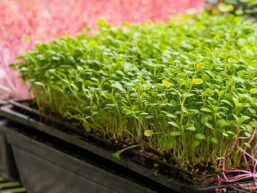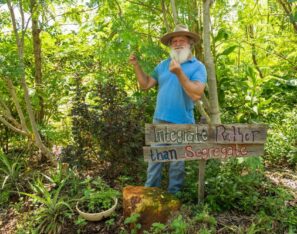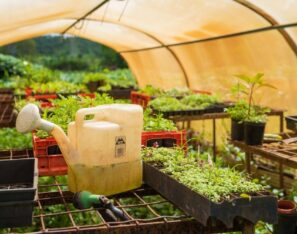Related Posts
Sustainable Agriculture
27 May 2021 / Agriculture
Globally, agriculture is succeeding in production but failing miserably in sustainability. Farming practices like monoculture, frequent tillage and overuse of herbicides has reduced soil health, created a superweed epidemic, contributed to greenhouse emissions and produced aquatic dead zones from pesticide runoff. Pasture and cropland occupy around 50% of the planet’s habitable land and provides food for a multitude of species. The answer to preserving our environment and stopping further damage to the ecosystem lies in sustainable farming.
Here are three common sustainable farming systems and why we should be encouraging them:
Permaculture
This system developed in the 1970s by Australians Bill Mollison and David Holmgren as a way of establishing a permanent and stable system of farming that mimics natural ecologies. In the words of Bill Mollison himself, “A system for creating sustainable human environments.”
The principles of permaculture can be used to rehabilitate cultivated land back into the state mother nature intended, through mutually beneficial synergies – incorporating the ‘no waste, closed-loop system’ seen in diverse natural systems. Working with nature instead of against by thoughtful observation rather protracted and thoughtless action; of looking at systems in all their functions rather than asking only yield of them.
Take a visit to a Permaculture garden at High Valley Dawn
Organics
Organic farming is the use of agricultural production systems reliant on green manure, compost, biological pest control and crop rotation to produce crops, livestock and poultry. Much like biodynamics, it does not allow the use of synthetic chemicals fertilisers, antibiotics, herbicides or pesticides. Obtaining an organic certification can be a lengthy process and is different for each industry.
It is typically a six-step process starting with the producer submitting an application form to be reviewed and assessed by certification officers who will deem what tests need to be done on the products/ region during the initial audit. The auditor is then sent out to assess the product and procedures and will then allow one month for corrections. After the adjustments have been made a review of the information occurs and if successful – organic certification and label approvals. Ongoing care is constant with annual audits to update the certification, with certification only valid for 12 months.
Purchase directly from an organic farmer – CQ Organics
To find out more about the benefits of Organic in the beef industry head to GBP Qld our local CQ organic beef producer.
Biodynamic
The farming method developed by Rudolf Steiner in 1924 is a simplistic approach. A healthy, well-structured soil, rich in humus (carbon) and high in biological activity is a requirement for any sustainable agriculture system. Healthy soil is the prime basis for healthy plants, animals and people. Weeds and pests are the best indicators of soil health with nutrient-deprived crops more susceptible to pests.
Local Capricorn Coast Farmer Ken Mason explains, “Most bugs are either great for the soil or neutral. There is a very small minority that are actually harmful and by ensuring the surrounding environment is supportive of biodiversity, nature will in time work its magic and the pest will be outcompeted. When we rush to use pesticides and poisons as a solution to rid our crops of pests, we not only dismiss the power of nature but kill off the good bugs in the process. Pesticides don’t discriminate, they kill the good microbes and the bad.”
Another component of biodynamic farming is a regularly turned compost heap which ensures that there is always a supply of rich nutrient-dense compost ready to be mixed into the soil. The greater biodiversity within the soil, the healthier the crop and the more resistant to pests it will likely be. Mulching is also important with green manure crops such as lucerne or pea straw that adds nitrogen back into the soil ready for future crops.
While there are many similarities with Organics, it’s the use of astronomical/astrological influences and homeopathic remedies that sets biodynamic apart and establishes it as a whole systems approach.
Purchase directly from a Biodynamic farmer – Ken Mason at the local Yeppoon Community Markets










